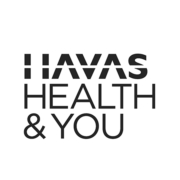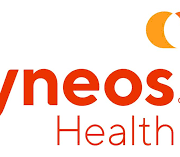Making medical information content matter more than ever
Making medical information content matter more than ever
By Michael DeLuca
An effective medical affairs (MA) and medical information (MI) strategy includes evidence and insights generation, data dissemination/scientific exchange, customer engagement, and a digital and innovation roadmap.
MI, which functions as a direct customer-facing group, plays an important role in this strategy by ensuring accurate, factual, non-misleading, unbiased medical information is available for both healthcare providers and patients so they have the right content when they need it.
Sounds simple, but with the number of medications, amount of data available, rapidly evolving technology, regulatory and compliance considerations, customer preferences on how they would like to receive information, and type of information customers want to receive, it’s complex.
I started my career as a pharmacist. I worked firsthand with doctors and patients as prescriptions were sent in. I can speak from experience that when I had questions about the medication, or my patients did, I needed to find and receive information quickly. Often you would start with reviewing the package insert and then maybe drug compendia or reference database (e.g., Lexicomp, Micromedex, Gold Standard, AHFS, etc.)
But what happened when the information you were looking for wasn’t readily available or not published? You called the toll-free number on the package insert and you expected to get some answers.
That’s the function of medical information – to be highly knowledgeable about medications and to quickly provide information that helps ensure the safe and effective use of company products.
This will never change. It cannot. For the safety of patients, manufacturers need this in place. But what must change is how this information is accessed and delivered. And it starts with technology.
Improving customer experiences through technology
Today’s modern MI teams must be able to connect with patients and clinicians in multiple ways that are convenient and informative for both parties.
Phone call? Sure, that works. But what if I prefer email? Or text message? Or live chat with an MI specialist? Or to go to a self-service portal or chatbot to be able to search and find an answer on my own without interacting with an MI specialist directly?
These are the modern means by which today’s patients and healthcare professionals communicate at work, school, and with other service providers. It is expected. And for MI teams, it is one more way to deliver value and improve customer experience and engagement
Unfortunately, many pharmaceutical and biotech companies still often only allow for a limited number of channels for patients and healthcare professionals to obtain medical information. This could be due to several factors. Pushback from legal, regulatory, and compliance internally; budgetary constraints; or maybe not having the right MI service partner with the technology, infrastructure, or expertise to support an expanded customer-centric approach. Again, complex. But this doesn’t need to be the case any longer.
The future of medical information is here
Today’s MI teams need a digital strategy in place that is part of an integrated overall medical strategy and plan.
As technology has advanced and the needs of healthcare professionals and patients have changed, companies today need technology and innovation roadmaps in place to provide customers omnichannel solutions to ensure communications are occurring via the customer’s preferred method.
Some customers are still going to prefer traditional channels and the phone is not going away. However, more self-service options are growing rapidly.
MI self-service portals have been around for more than 15 years, and many pharmaceutical companies have built and invested in these websites. All typically include the ability to search an MI response document library to obtain copies of approved scientific response documents (SRDs). However, search functionality may be limited and difficult for healthcare professionals to quickly find the information they are looking for to address their question(s). Additionally, only a limited number of companies have MI websites and information digitally available for patients and caregivers.
Many companies now also offer live chat as well, but this has the same limitations as phone channels in only having staffing available during defined business hours.
Chatbots with conversational artificial intelligence (AI) allow for a better customer experience and provide 24/7/365 availability to address the most common questions healthcare professionals and patients have. They can help reduce friction while quickly and accurately providing an MI response to unsolicited requests for information.
MI departments also must ensure content provided is in a format that is the most digestible, easy to navigate, and usable for the different customer types they interact with. Preferences for healthcare professionals and patients are not the same. There are even different preferences based on type of healthcare and specialty.
Pharmaceutical company MI teams are transforming the content they develop and leveraging infographics, interactive content, and other new formats to better meet the needs of patients and healthcare professionals.
Eventually content will become even more personalized as technology continues to advance. It will be important for companies to develop content in a componentized manner and in a way that the same content can be easily leveraged across multiple channels and in different formats. And it also must be in a format that can be leveraged by other medical affairs teams such as field medical teams (e.g., medical science liaisons), ensuring a consistent answer and message are provided. It is critical for medical affairs to be communicating in “one medical voice”.
That’s the future of medical information. A future we should all embrace and work toward to be more customer-centric and help improve clinical decision making and patient outcomes.
Michael DeLuca, Pharm.D., MBA, MSRA, is senior VP, medical information, EVERSANA. Contact him at [email protected] to learn more.










